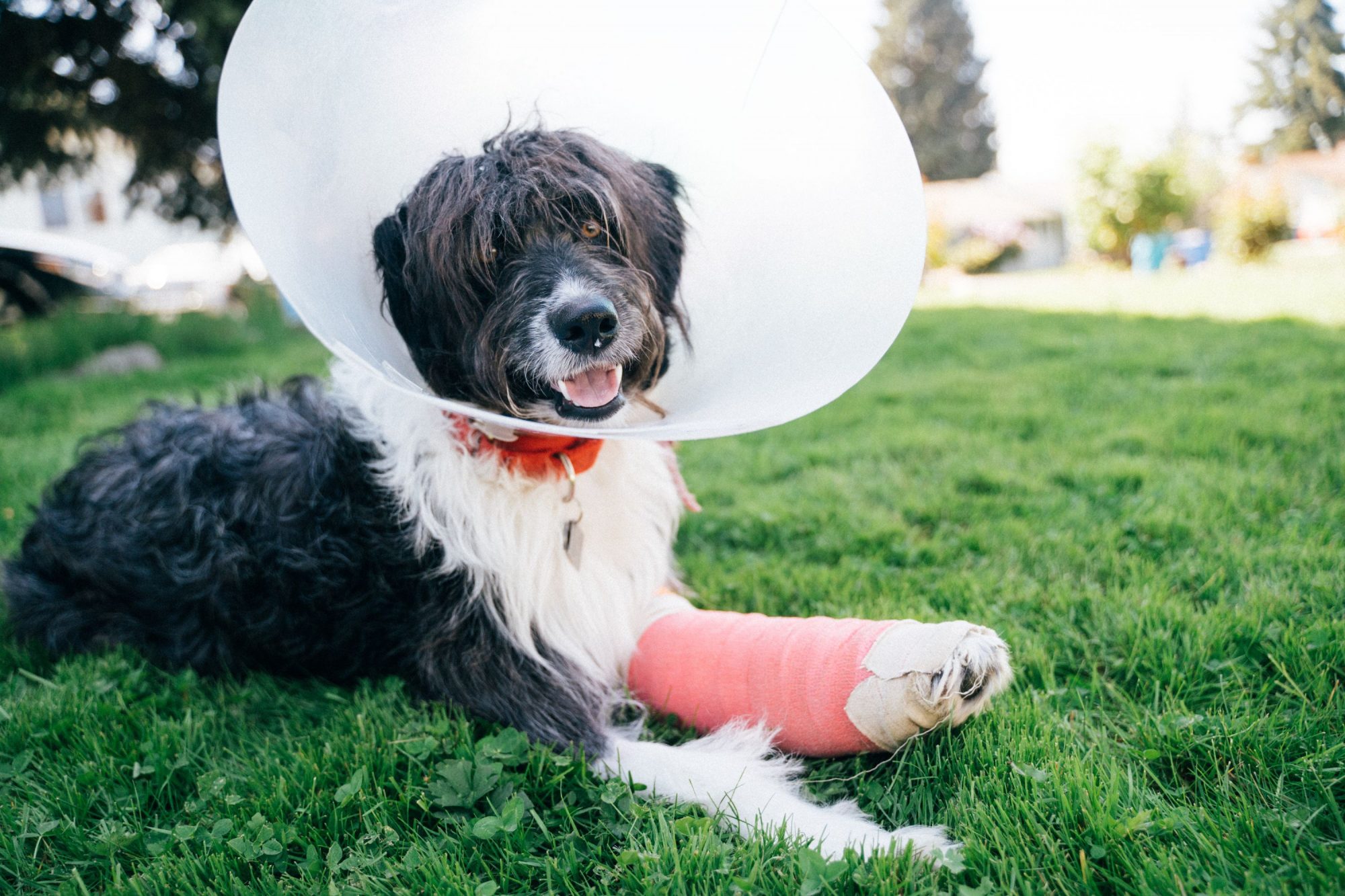The Most Common Orthopedic Injuries In Dogs

We like to think that our pups are impervious to pain and injury, yet we know that they push themselves sometimes to dangerous degrees. What’s more, even if a dog isn’t prone to accidental injury, they could be genetically predisposed to certain conditions. The bad news is that orthopedic injuries in dogs occur in relatively high numbers. The good news is that, in addition to certain preventive measures, the Vet Gal and Guys can address orthopedic injuries in dogs with effective, supportive treatments.
Bones, Joints, Tendons, Ligaments
Orthopedic injuries in dogs are among some of the most prevalent health conditions that veterinarians see. Orthopedic treatment focuses on any disease, injury, or condition that impacts the skeletal structures of the body. This includes the bones, ligaments, tendons, and joints.
Certain breeds may be at higher risk for orthopedic health problems, simply due to their genetics and anatomy. Large breeds, for example, carry more weight, which puts more pressure on the joints and bones. Aging dogs may suffer more from osteoarthritis as their joints wear down over the years.
Hip Dysplasia
Caused by the development of an abnormal hip joint, hip dysplasia is characterized by the hip joints grinding against each other. It may not cause pain for a while, but over time, the joints break down. This is painful, and can lead to mobility issues and loss of function.
Hip dysplasia may develop faster depending on weight, nutrition, lifestyle, and growth development. Orthopedic surgery, including total hip replacement, can improve function to the hip joints.
Luxating Patella
The kneecap, or patella, should sit in a groove between the shin and femur and above the knee. A luxating patella refers to the kneecap being dislocated or somehow out of its normal place. Limping, hopping, or skipping a step usually give this condition away.
Luxating patella is common in certain breeds, such as chihuahuas, Maltese, French poodles, and bichon frise, but can affect any dog. Left alone, the ligament connected to the luxating patella wears down and can even turn the dislocation inwards. Treatment may involve anti-inflammatory medication, but can only be corrected with orthopedic surgery.
Torn Cruciate Ligament
Constant wear and tear can lead to strain, but may even cause tearing of the tendons and ligaments. The cranial cruciate ligament (CCL) connects the shin to the thigh bone. When it tears from overexertion, or as the result of incomplete or inadequate recovery time, surgical intervention is necessary. Larger breeds may experience CCL more than small breeds, but any dog that over exercises and/or doesn’t slow down to heal can be vulnerable to this type of injury.
Intervertebral Disc Disease
Intervertebral disc disease (IVDD) can occur in all dogs regardless of breed, size, and age. The three types of IVDD range from spinal disc rupture, bulging spinal cord, and sudden tearing of the outer spine. This type of condition is incredibly painful and affects the ability to walk. Depending on the type of IVDD, treatments range between pain medications to surgery. In severe cases, some dogs will never be able to walk on their own again.
Orthopedic Injuries in Dogs
If you have questions about these common orthopedic injuries in dogs, please call us at (817) 733‑3011. Your pup’s safety and comfort are important to us, and look forward to helping you address their needs.



